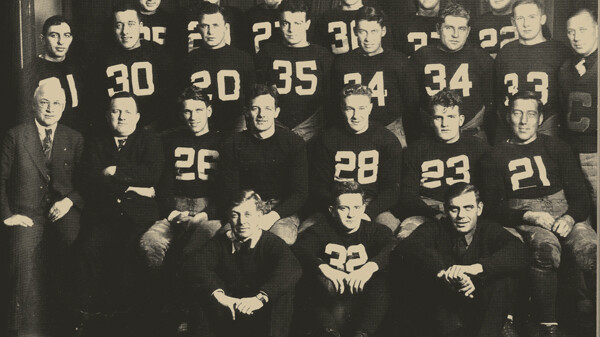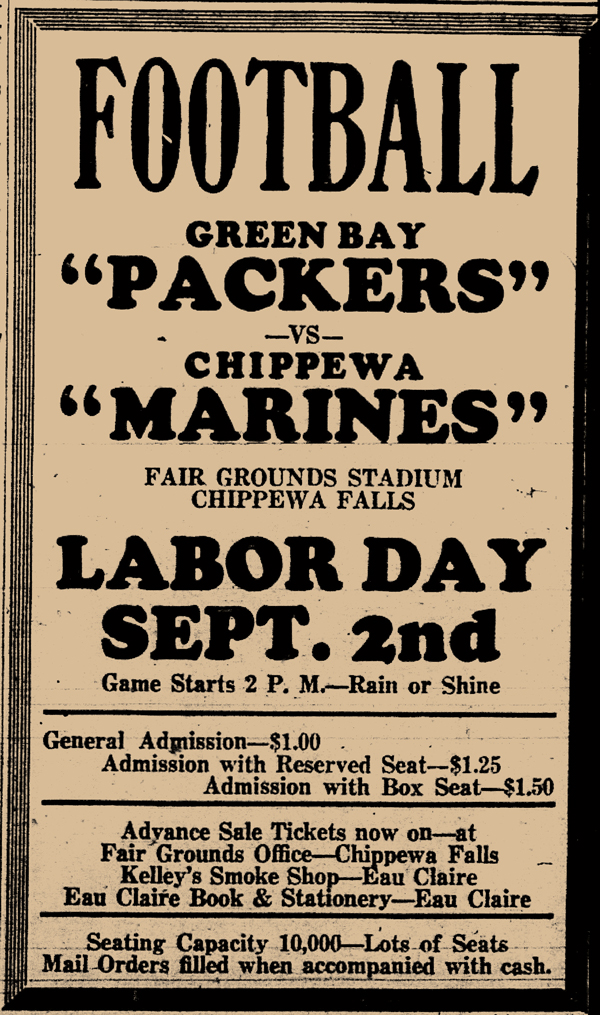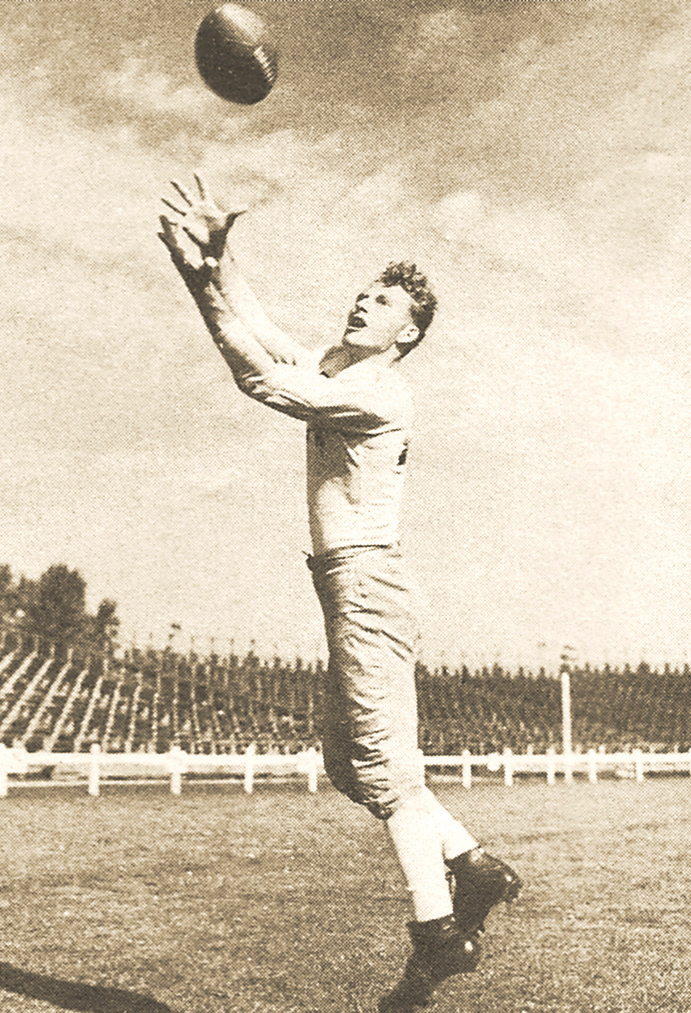The Day the Packers Came to Play
in 1935, a bunch of guys from Chippewa Falls came close to beating the Green Bay Packers – at least for the first half

These days, when the Green Bay Packers come to town, it’s to sign autographs and pose for pictures with fans.
In the old days, it was to butt heads with the locals on the gridiron to prepare for the regular season. Nearly 80 years ago, the legendary Packers rumbled with a team from Chippewa Falls, the Chippewa Marines, who put up a good fight against the pros – at least for a couple of quarters – and wrote a unique chapter in Chippewa Valley sports history.
Today’s NFL preseason games are played only against other NFL teams, and teams and their fans treat them with almost the same level of attention as regular-season contests. Back in pro football’s wild and woolly early days, however, the Packers warmed up for the regular season by barnstorming around their home state, taking on semi-pro and college all-star teams in exhibition games. In 1935, that meant games in Merrill, La Crosse, Stevens Point, and Chippewa Falls. Imagine today’s Packers taking on the semi-pro Chippewa Valley Predators or the Eau Claire Crush, and you’ve got an idea of what it was like that Labor Day – Sept. 2, 1935 – at the fairgrounds in Chippewa Falls.

The Chippewa Marines’ lineup was filled with men who had experience playing college ball in Eau Claire, River Falls, and Whitewater, as well as for Army, Navy, and the University of Wisconsin. They also had one ringer on their roster: a colorful halfback who played under the name Johnny Blood. The New Richmond native – whose given name was John McNally – had been a Packer from 1929-33. Blood, a future hall-of-famer, seems to have signed with the Marines as a way of attracting the attention of his old team in the hopes of getting a new contract.
A week before the game, the Eau Claire Leader reported that large crowds turned out in Chippewa Falls to watch the Marines’ two-a-day practices. “Interest of the fans appeared to be centered on the work of Johnny Blood, a former star performer of the Green Bay Packers, who will be seen in a halfback position against his old teammates,” the newspaper reporter. “Blood’s passing, pass-receiving, and punting created a lot of enthusiasm among the crowd.” In the same report, the Marines’ management is quoted as predicting the game “will be the largest ever to see a gridiron contest in northern Wisconsin.” A few days later, the newspaper said “reserved seats and boxes have been going like hotcakes.” Box seats cost $1.50, while general admission was $1.
Packers coach Curly Lambeau – himself a future hall-of-famer and stadium namesake – and his team arrived in town two days before the game and worked out at the fairgrounds while the Marines practiced nearby at Glen Loch. “The (Chippewa) boys are all in the pink of condition and anxious to enter the fray against the highly touted Green Bay aggregation which this year has been bolstered by the addition of a number of college stars who won renown by their playing last year,” the Eau Claire Leader reported Sept. 1. “The Packers have a slight edge in weight” while “both teams are big and also fast,” the newspaper continued.
On game day, between 7,500 and 8,000 fans gathered at what is now know at the Northern Wisconsin State Fairgrounds to watch their hometown heroes take the field against the Packers. Objectively speaking, the Marines didn’t look like they stood a chance. For example, the Packers lineup included – in his very first pro game – Don Hutson; he went on to a hall-of-fame career and is generally considered the greatest wide receiver of his era. (Nearly 70 years after retiring, he still holds an astonishing 10 NFL records.) The Packers’ enviable roster also included four others – fullback Clarke Hinkle, tackle Cal Hubbard, quarterback Arnie Herber, and guard Mike Michalske – who are now enshrined in the Pro Football Hall of Fame.

Nonetheless, the game wasn’t a blowout; in fact, it became a defensive battle. “The Packers were played to a standstill throughout the first two periods of the game, several times being thrown for losses,” the Chippewa Herald-Telegram reported. The Packers scored a field goal near the end of the first quarter, but went scoreless in the second quarter. Somehow the Marines had gone a full half against one of the best teams in the NFL and were only down 3-0.
The tide gradually turned in the second half. “Lambeau made frequent substitutions in an effort to get his machine to click, which it finally did, but not smoothly for the Marines kept pegging away,” the Herald-Telegram reported. “Several times Packer passers were spilled for losses and numerous plays were broken up while still in the making.” The Pack scored again late in the third quarter, bringing the score to 10-0. “The Marine defense did not weaken until the fourth period was well underway, and up to this point the Packers were unable to make any consistent gains thru the Marine line and had to resort to end runs and passes,” the Eau Claire Leader reported the next day. However, the Packers scored two touchdowns in the fourth quarter, running up the score to 22-0 before the game ended.
The game may have been a loss for the Marines, but it was a win for their star, Johnny Blood. After joining a La Crosse team that played the Packers in another exhibition game a few days later, he was re-signed to his old team and played with the Packers for two more years, including on their 1936 championship squad.
Unfortunately for the Marines, the 1935 season was their last (at least until they were reincarnated in 1947). Nonetheless, having a hometown squad put up a respectable showing against a team packed with pro football legends is still a notable achievement. As the Chippewa Herald’s Paul Huset wrote in a 2010 retrospective, “In a city full of history, the Marines’ game against the Packers remains one of the favorite claims to fame for many Chippewa Falls residents.”

